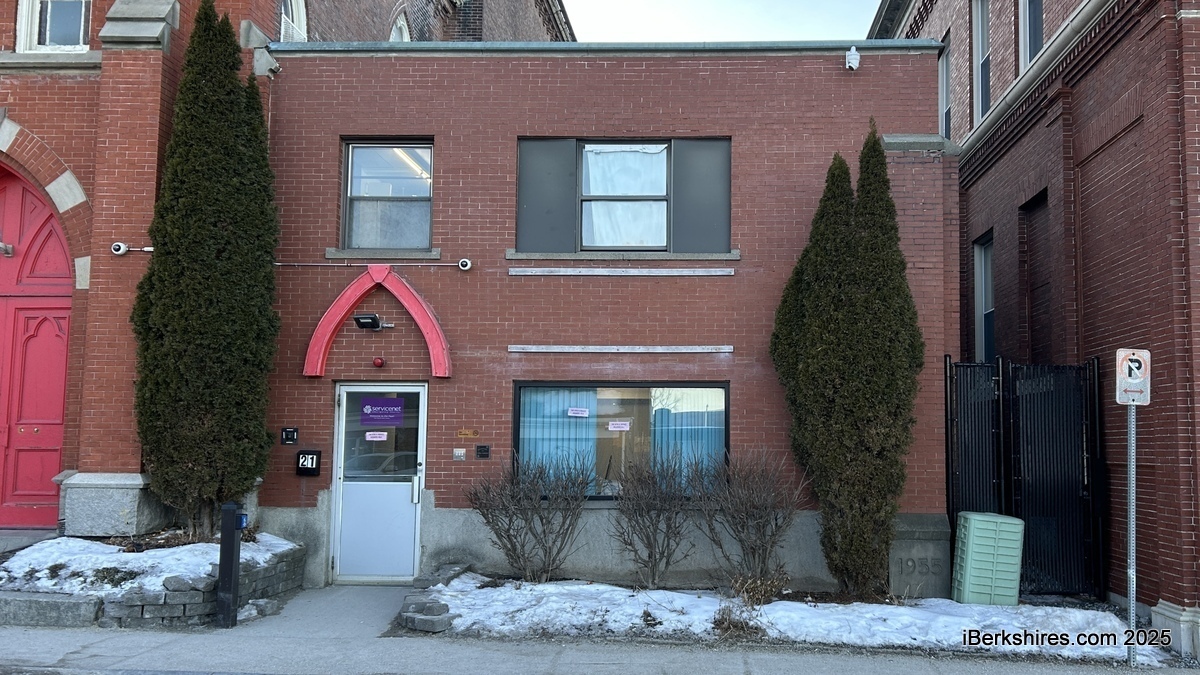Irate Taxpayers Demand Answers on Clarksburg Sewer Bill Woes
 |
"How long has this been going on and how many people are we talking about and why are we $30,000 in debt?" asked one woman.
The state Department of Revenue ordered the town to add 30 cents to its property tax rate after learning that the sewer fund was $7,000 in the red because bills weren't being paid. The fund, which normally carries around a $10,000 cushion for emergencies, had been able to cover drops in receipts in the past.
That wasn't the case this fiscal year as a growing number of late quarterly bills and larger bills combined to create a deficit that couldn't be covered.
Selectmen Chairwoman Debra LeFave read a statement at the beginning of the meeting making clear that the decision to raise taxes on the entire town had been made by the Department of Revenue.
| In the Outhouse |
| Late sewer bills carry a 14 percent penalty and a $5 charge. Not receiving a bill doesn't void the homeowner's responsibility. ...
Demand notices have to be paid in 30 days to avoid further action....
At fiscal year's end, delinquencies will passed to the deputy collector and liened to the homeowners real estate bill. Added on:
$10 warrant fee
Ignore the second notice, get a lien on your property (tax taking) and your name published in the local media.$12 notice fee $17 2nd notice fee ... ...
Pay in 14 days or the land is recorded as a tax lien at the Registry of Deeds and collection is turned over to the town treasurer. If it ends up in Land Court, the delinquent payer pays the cost.
|
The extra 30 cents per $1,000 is a one-time charge to fill the enterprise fund's coffers; as the fund is replenished, it will repay its debt to the town. The sewer fund is maintained by those users on the line, which covers only a section of town.
Tax Collector Melissa McGovern Wandrei said that because of the difficulties and expense in taking delinquent payers to court, their bills had been liened onto their real estate bills in following fiscal years. That usually prompted the banks of those with property tax escrow accounts to pay the bills.
"I didn't know there was necessarily this kind of repercussion because of it," she said, adding the town hadn't pursued any recent tax takings to jolt the scofflaws because of software problems between her and the treasurer's system.
The number of delinquencies is about the same, 10 percent, said Wandrei, but the total amount of the annual sewer billing has increased, up from $160,000 last year to $200,000 this year.
Town Manager Michael Canales said the town could not take legal action against deliquent payers until May 1, the end of the fourth quarter, because of state law. In the meantime, late fee and interest penalties can be applied and, soon, deputy sheriffs will be knocking on doors with collection notices, he said.
"We only have trouble with a few people and that's going to deputy [tax] collector," said Wandrei of frequent delinquents, some dating to 2006. "There's not a whole lot we can do with people until it goes to their real estate [bill]. We can't shut off their sewer."
Several speakers, however, wanted to know why more wasn't done prior to the state's intervention.
"We didn't want to incur the cost of going after them at that time but I think we should have because they should have paid and not the whole town," said Mary Giron, who also questioned whether bills were being delivered because two of hers weren't — costing her late charges. "I never knew I was late, I never had a phone call, never had a follow-up letter."
Selectman Carl McKinney noted that Wandrei had a 95 percent or better collection rate on property taxes, "which for the state of Massachusetts is good." However, it was apparent, he said, that "sewer collection is an area that we need to work on."
Giron said there was a problem with the sewer collection process if it had cost the town $30,000. Once people get behind — whether through missed bills and added collection fees — it only makes it harder for them to get caught up. The town should be working with them immediately, she said, even to set up repayment plans.
"We need to get to these people beforehand so it doesn't happen again," she concluded to wide applause.
Canales said the situation "wasn't foreseen by anybody ... [but] we have to be a little more diligent in aggressively going after them."
In other business:
- The board approved a liquor license for the North Adams Country Club, whose managers forgot to renew the license in December. Hours of operation for the license are 11 a.m. to midnight.
- LeFave read a letter written from Wandrei to the board disclosing her involvement with AFLAC. Wandrei stated she would not do business during her scheduled work hours at Town Hall and will only act as liaison between employees and AFLAC through scheduling with the town administer. Michael Ryan, AFLAC regional manager, would be the board's contact.
"This will no way affect my position as tax collector," she wrote.
The board had approved allowing AFLAC to offer insurance to town workers but was concerned over Wandrei selling its services in the municipal building. The Selectmen took the letter under advisement until the next meeting.
















